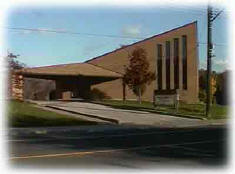Report to the Participants of Session One
from the Affirming Steering Committee
February 14, 2008
Thank you for attending the first session of our Affirming series in
January; your presence was most appreciated!
Since the session we have made a report to Board, prepared a second Q&A
segment for the MEMO, and have begun to build an agenda for Session 2,
March 18. We hope that you will join us.
As promised, for your information here is a summary of Session 1 which
includes a few explanatory notes in response to questions raised. Your
responses and questions framed the information provided in the February
MEMO and has helped in the planning of Session 2.
·
21 people attended
·
Several commented on the program arrangement - worship, input,
discussion and reporting. When asked several reported learning about
Affirming as opposed to affirming and now understood what it means to be
explicit. Helen’s analogy, large ’A’ = Affirming, small ‘a’ = what we
are now was helpful in this regard.
·
The concept of a welcoming church surfaced a number of times. The
exchange involving the question, 'Isn't our saying we welcome everyone,
enough?', and the response, 'There are some who need more than the
welcome mat to respond to the invitation.' seemed to resonate with many.
·
There were questions regarding how this fits with a broader view of
inclusion as in " We are a church, everyone is welcome."
·
Response to the DVD - St John's Centennial, elicited these comments:
astounded, moved by passion, grateful, warmth in congregation, looked
like us, jarring language, one point of view, concern, rolling away
stone, surprised by court challenges, they seem comfortable,
faith-based, we see enthusiasm from somewhere else, surprise-why are we
having this conversation.
o
Note, the comment re: rolling away the stone, is the pastor's
categorization, as in a congregation can either be hammerers of nails or
one that rolls away stones. And the comment about this congregation
being moved by more than enthusiasm, as in living out a deeper
spirituality was helpful in focussing us on evolving ministry.
·
Responses to: Why it is important for us to be explicit?: To
make others aware and for us to be challenged and decisive, Ensure that
we've decided Large A or small a, People of all orientations invited,
Teach children and others, To walk the talk because we need to.
·
Responses to: What it would offer the community if we were?:
Openness to all and education opportunities, Offering alternatives,
Make us distinctive, Support, Challenge those with narrower views,
Acceptance for all and provide a truly safe place, provide assurance to
outsiders. Note: There seemed to be a sense of emerging ministry among
some of the responses, a realization that with the designation would
come responsibility beyond the regular welcoming church initiative.
·
Responses to: What it might offer ones who are unchurched,
marginalized within their own faith communities or alone in their
orientation?: Comfort and safety, Could join fully, Security in
public declaration, Provide another option, May give a rethink of
Spirituality, May help save lives, Opportunity to explore.
o
Note: There seemed an openness for exploring ministry.
·
At least three people raised the concern about 'voting on this', I.e.
how would it occur? how might everyone be involved? The response given
was the standard, i.e. our practice within UCC polity, 50% plus one.
Note: Subsequently the following explanation of the United
Church of Canada decision making process was provided:
Concerning the decision making process, voting, proxy and mail-in
ballots have not been part of UCC practice. The reason being that
there is a presumption that the Spirit moves us when we are together,
together engaging an issue or decision. It is not a matter of personal
choice but communal wisdom. Thus members elected to office or court are
not bound by their constituency as it is assumed that the constituency
does not have the benefit of the faith and spirit present in the court
where the discussion takes place.
·
In the same way a couple of folks raised the issue that the Steering
Group is pro and therefore could be biased or at least appear biased.
The Steering Team had discussed this and decided that Harry would report
the concern to the Board. The issue came up in another way regarding the
DVD, as in the negative side wasn't depicted. The Team will consider
revisiting the other two scenarios to see if they reflect some of the
deliberation/negotiation involved in the deliberations of other
congregations.
Kathryn, Anne, Harry.




